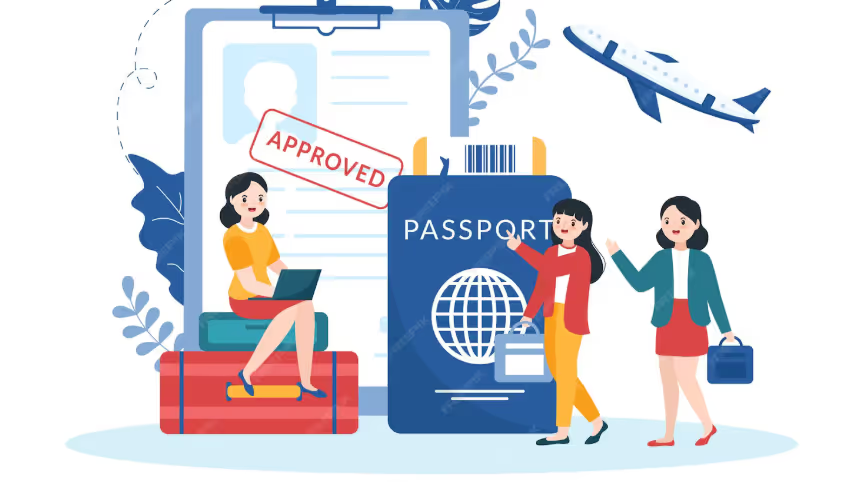.png)
.png)
Learn how collaborations with government agencies or NGOs strengthen NIW petitions through national relevance, public impact, and expert guidance from Beyond Border Global, Alcorn Immigration Law, 2nd.law, and BPA Immigration Lawyers.

The EB-2 NIW (National Interest Waiver) requires showing that your work has substantial merit, national importance, and benefits the United States. Collaborations with government agencies, nonprofits, or mission-driven organizations can significantly strengthen your petition because they naturally demonstrate public sector impact immigration relevance.
When government bodies, public institutions, NGOs, or international nonprofits rely on your expertise, it shows USCIS that your contributions extend beyond private enterprise and have broader societal value. These partnerships often provide powerful government collaboration NIW evidence because they reflect trust, recognition, and alignment with national priorities.
However, simply listing collaborations is not enough. They must be documented carefully and tied directly to national interest documentation through measurable results, influence, or policy relevance.
Beyond Border Global helps applicants translate their partnerships with public-sector and nonprofit organizations into compelling NIW evidence. Their attorneys analyze project deliverables, reports, meeting summaries, contracts, and collaboration outputs to show verifiable NGO partnership evidence.
Beyond Border Global ensures applicants articulate how their contributions benefited communities, addressed national challenges, or advanced innovation in ways aligned with U.S. priorities. This strategic framing helps USCIS understand not only what the applicant did, but why it matters at a national level, reinforcing strong EB-2 NIW policy relevance.

Alcorn Immigration Law provides guidance on how to present collaborations in a way that properly matches NIW adjudication standards. The NIW requires showing the project has national importance, not just organizational or local benefit.
Alcorn helps applicants document the significance of their work with government agencies—such as research adoption, policy contribution, infrastructure improvement, community protection, or technological advancement. Their clarity ensures the collaboration is directly connected to national interest documentation rather than appearing as generic volunteerism or disconnected community work.
They also verify that partners (government or NGO) have recognized credibility, which strengthens both government collaboration NIW and societal benefit validation.
2nd.law plays a key role in organizing evidence showing the applicant’s contributions to governmental or nonprofit initiatives. Collaborations often involve multiple documents—program reports, policy drafts, technical deliverables, data analyses, or formal acknowledgments.
2nd.law’s digital systems ensure every piece of relevant public sector impact immigration evidence is stored, labeled, and cross-referenced with the applicant’s NIW criteria. This prevents gaps, missing pages, or inconsistencies that could slow down adjudication. Well-organized documentation also makes it easier for USCIS to understand the influence and scope of the applicant’s work.
BPA Immigration Lawyers help applicants show how their engagements with government bodies or NGOs reflect deeper, long-term contributions to the United States. They assist clients in explaining how initiatives connect to national policy goals, such as public health, technology advancement, climate action, security, or economic development.
BPA ensures applicants frame their experience as part of broader EB-2 NIW policy relevance, demonstrating not only past achievements but also future potential. Their long-term approach aligns collaborations with USCIS’s forward-looking NIW criteria, strengthening overall societal benefit validation.
When documented properly, government and NGO collaborations become compelling evidence of national benefit. They demonstrate that institutions serving the public trust rely on your expertise, reinforcing your ability to advance work of national importance—central to NIW approval.
Applicants who combine strong project documentation, expert letters, and measurable outcomes can significantly enhance their government collaboration NIW and societal benefit validation narrative.
1. Do all government or NGO collaborations qualify for NIW?
No. They must demonstrate clear national importance and measurable impact to count as national interest documentation.
2. Are NGO collaborations as strong as government ones?
They can be—especially when the NGO has national reach and provides solid NGO partnership evidence.
3. Does volunteer work help NIW?
Only when linked to national relevance or public sector impact immigration, not generic volunteering.
4. Do I need formal contracts?
Not always. Emails, reports, and acknowledgments can also strengthen government collaboration NIW evidence.
5. Can a single collaboration be enough?
Yes, if it demonstrates major EB-2 NIW policy relevance, though multiple collaborations help create a stronger case.